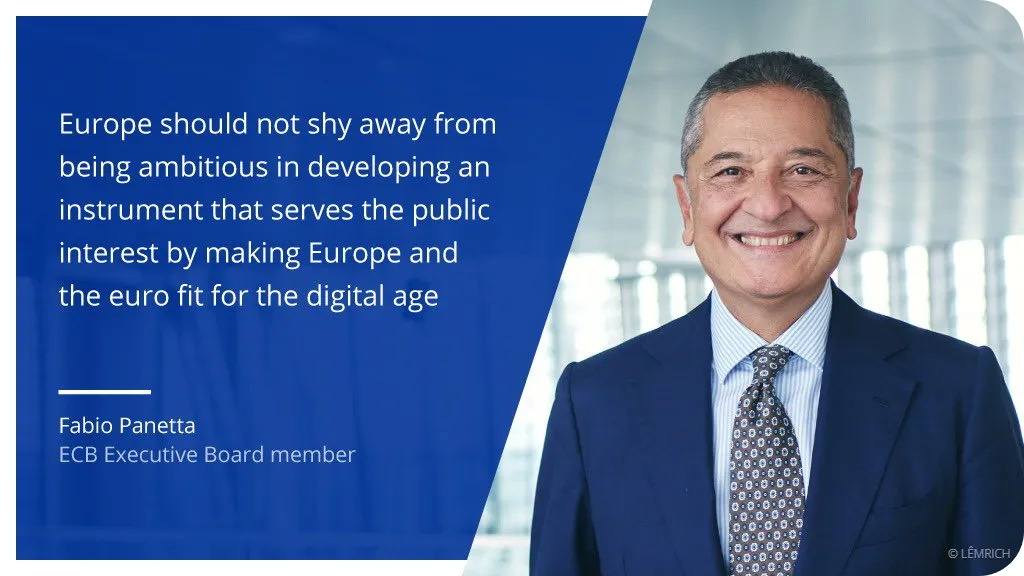Digital Euro Gets ECB Seal of Approval



成为塑造 GS 未来的独家团队的一员
Fabio Panetta, an Executive Board Member of the European Central Bank (ECB), expressed strong approval for the European Commission’s (EC) legislative proposals concerning the digital euro. Speaking to the European Parliament’s Committee on Economic and Monetary Affairs on September 4, Panetta emphasized that the proposals position Europe as a leader among advanced economies in the development of Central Bank Digital Currencies (CBDCs). He argued that this could counteract the increasing influence of private entities in the financial sector, thereby mitigating associated risks.
Details of the European Commission’s Proposals
The European Commission unveiled its legislative proposals for the digital euro on June 28. Panetta, a known critic of cryptocurrencies, lauded the proposals as “a new paradigm for preserving monetary sovereignty.” He stressed that the digital euro would guarantee Europeans continued access to a public payment option—be it cash or digital—especially as private payment services with “closed-loop solutions” become more common. Panetta drew parallels between private payment systems and private messaging platforms, noting that users often feel compelled to join the most popular systems.
 Source: https://twitter.com/ecb/status/1698701792375091363
Source: https://twitter.com/ecb/status/1698701792375091363
The European Commission has proposed granting the digital euro the status of legal tender, thereby making its acceptance for payments obligatory. Panetta also commended the Commission’s focus on privacy in its digital euro proposals. He elaborated that the proposals include reasonable pricing policies and empower the ECB to maintain financial stability through tools such as holding limits.
Risks of Private Payment Solutions
Panetta warned that the alternative to introducing a CBDC is not merely maintaining the status quo. Instead, it would mean ceding ground to emerging private solutions that could have a destabilizing effect on the economy. As an example, he cited PayPal’s recently launched USD stablecoin as a potential risk. Panetta explained that private payment service providers aim to expand their market share without any incentive to limit their services or ensure compatibility with other platforms. This could lead to a monopolistic market structure, as has occurred in the past.
In contrast, Panetta stated that the digital euro would facilitate orderly adjustments in the financial sector while providing a platform for pan-European innovations in payment services.
The European Central Bank’s endorsement of the European Commission’s digital euro proposals signifies a significant step toward safeguarding Europe’s monetary sovereignty. By offering a public payment option and incorporating robust privacy measures, the digital euro aims to counterbalance the growing influence of private payment solutions, thereby ensuring a more stable and inclusive financial ecosystem.

















